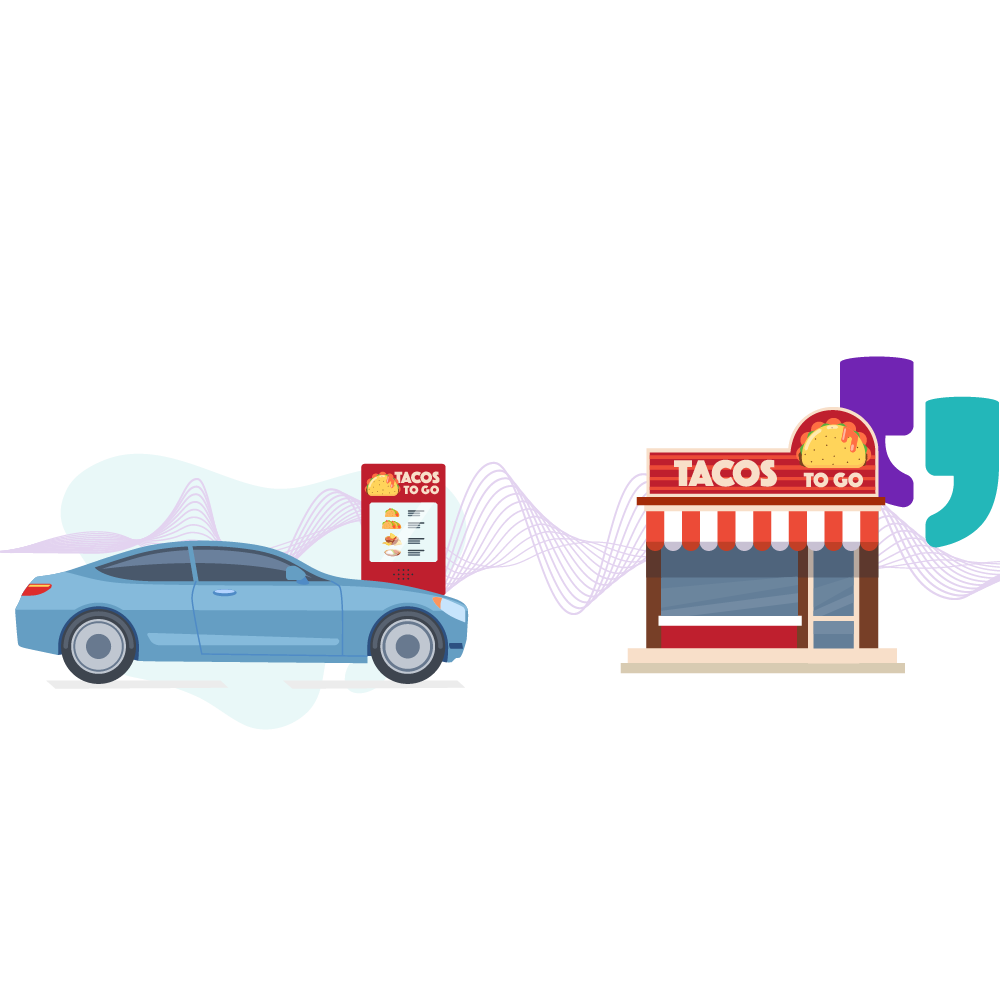Quick service restaurants, continuously looking for ways to improve service and stay on top of technology trends, are turning to AI voice robots to stem labor shortages and keep profits high.
 ConserveNow rolled out its voice automated AI robots in 2020 to help QSRs take orders and relieve under-staffed restaurants. Provided
ConserveNow rolled out its voice automated AI robots in 2020 to help QSRs take orders and relieve under-staffed restaurants. Provided
Quick service restaurants, continuously looking for ways to improve service and stay on top of technology trends, are getting a little help from the friendly voices of George and Becky.
The duo, artificial intelligent voice-automated robots, greet customers, take orders and are helping increase sales at several big-brand QSRs, including Domino’s Pizza. The bots can take orders over the phone for pickup or help customers choose items at digital drive-thru menu boards. George and Becky also help reduce the need for human employees, which has aided restaurants through the recent labor shortage. In addition, the technology has helped keep some restaurants from closing as many did after the onset of the pandemic.
 |
| Ben Brown, provided |
Domino’s Pizza began using the AI technology, designed by ConverseNow, in a pilot program in 2020. ConverseNow, an IT services and consulting firm based in Austin, Texas, took about 18 months to create, build and test the AI platform before it was ready to go to work. ConverseNow consulted with Samsung engineers, talked to many restaurant employees and designers, and immersed themselves in QSR operations to build the ideal AI platform. So far, George and Becky are pulling their weight.
The AI bots have helped restaurants increase same-store sales by 31%, raise average ticket costs by 25% and save about 90 hours of labor per store each month, according to ConverseNow. The bots are computer software based and do not take a physical form. Store managers can turn them on and off as they wish.
As of March, the ConverseNow bots have been used in more than 1,100 stores, logging plenty of conversations with customers. At Domino’s, for instance, call-in customers can choose to speak to the automated service or wait to connect with a staff member.
Becky and George are designed with conversational and emotional intelligence to recreate natural conversations. They can use anonymized machine intelligence for real-time recommendations based on variables, including a customer’s past orders, if the customer is willing to add to the order to increase upsells, time of day, weather and how busy the QSR is at time of order. They’ll repeat the order back to the customers, similar to human employees, to ensure accuracy. The bots also can handle order changes.
For support, ConverseNow has partnered with OrderSolutions, a call center service, to make sure a human voice is standing by in case something goes wrong.
Meeting challenges
Ben Brown, VP of marketing for ConverseNow, said that since the technology is so new, the company didn’t have a blueprint to follow. Challenges cropped up during the design phase.
«Human conversation is simple to the human brain, but incredibly complex for a machine to process,» Brown said in an email to DST. «Breaking down that process into objective steps, where our AI can understand slang, allows people to change their minds, filter out background noise and account for the many other factors in everyday conversation (that) took tremendous time. We’re happy to see remarkable results now.»
 |
| ConverseNow’s AI voice bots can take orders through digital drive-thru menu boards. Provided |
Matt Wackerbarth manages Aim High Pizza, a Domino’s franchisee in Florida. Wackerbarth oversees four locations in the Sunshine State. Wackerbarth’s restaurants were among the first to use the AI technology, and he’s been impressed with the results.
«I love George and Becky,» Wackerbarth said in a Zoom interview with Digital Signage Today. «They’ve really helped us out a lot. That’s one less person that we need taking orders, talking to customers. It frees our staff up to focus on other needs we have across the store. And, when they do take orders, say over the phone, they can spend a little more time with customers knowing they don’t have to be so rushed.»
Brown said the company’s founders, Vinay Shukla and Rahul Aggarwal, share a passion for restaurants and technology. They were inspired to create the AI ordering platform to «reshape the future of hospitality.» In the past couple of years, the bots have reduced wait times at drive-thrus and cut down on long lines.
Not only do George and Becky make it more efficient for customers to place orders, they also relieve stressed, overworked staff members. Before the Great Resignation, employee wellness was often overlooked. Not so much anymore as QSRs are scrambling to fill positions. They’re taking a closer look at how to keep employees happy.
«Everyone talks about the restaurant guest experience, very few think about the operator experience. Because the restaurant industry is so high-touch, it’s naturally prone to all sorts of challenges related to labor,» Brown said. «Most people don’t want to work in a high-stress environment, and when the pandemic forced many restaurants to close, it made a lot of people realize they didn’t want to return to that type of lifestyle.»
The AI bots have kept employee retention rates high and some workers are actually leaving restaurants without the platform to join companies that have it, according to Brown.
«It’s a really great service to have, especially on those nights when we’re really slammed,» Wackerbarth said. «We can rely on the bots to take the orders efficiently and accurately and we just know they’ll do a good job.»
Is AI the future?
At a Fazoli’s in Kentucky, the AI platform literally took over. Hit hard by a winter storm, many employees couldn’t get to work. Fazoli’s opened up its drive-thru, activated the bots and had them take orders throughout the day. The technology allowed the store to stay open and bring in much-needed revenue.
Brown views the ConverseNow platform as a digital colleague, ready and willing to pitch in. The technology has become more customizable as well. Blake’s Lotaburger, a QSR chain, also uses the ConverseNow platform. George is still present, but at Blake’s Maggie the voice bot replaces Becky. It’s unclear if Becky harbors any jealousy.
«We work with many leading restaurant chains across the country, and each of them can create different names and profiles for our AI so it best fits their brand,» Brown said. «We’re also working with each of our brand partners to produce custom voice profiles for their virtual assistants, further tailoring our technology to their individuality. At Blake’s Lotaburger we’re recording some of their most acclaimed team members so that George and Maggie have an even more familiar feel.»
With ConverseNow’s recent success, Brown believes more QSRs will take a leap and try the AI bots. In the past few months, ConverseNow has partnered with other brands to improve their POS systems, digital drive-thrus and other technology.
In a few years, could human voice interaction while ordering be a thing of the past?
«Voice AI is already matriculating across the QSR landscape and it’s only a matter of time before speaking with a virtual agent will be the default option that guests are not only familiar with, but embrace as being the most efficient and enjoyable way to order food,» Brown said.

